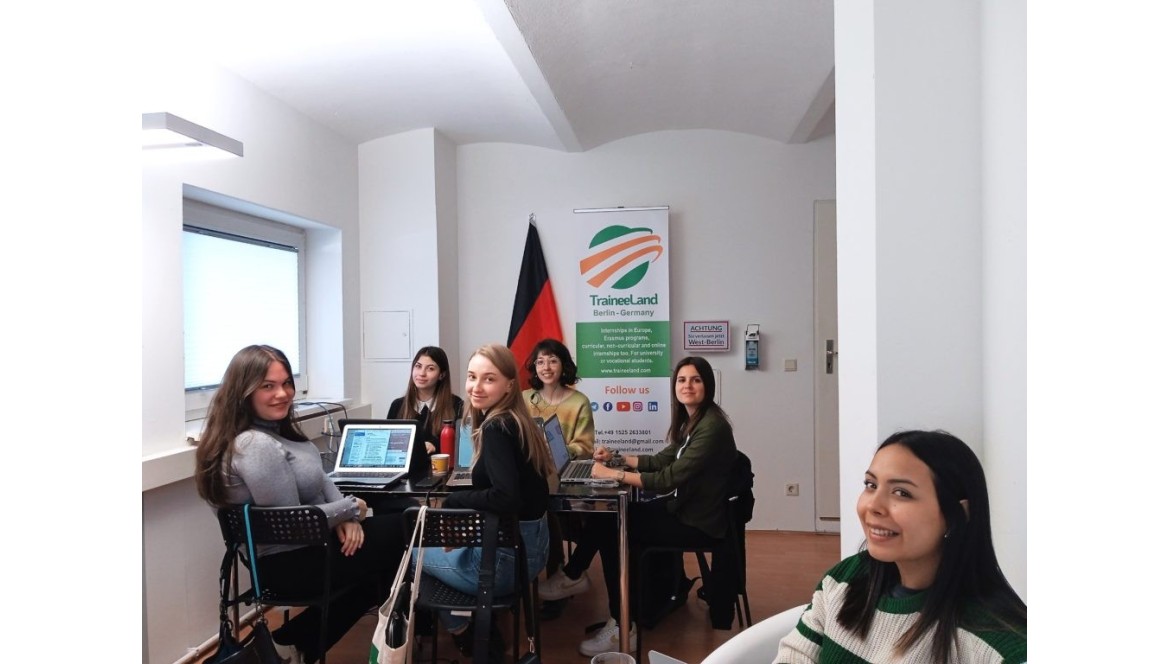What is the Erasmus Plus programme for internships?

What is the Erasmus Plus programme for internships?
Erasmus+ supports traineeships (work placements, internships, etc) abroad for students currently enrolled in higher education institutions in Programme countries at Bachelor and Master level as well as for doctoral candidates. These opportunities are also open to recent graduates.
By doing a traineeship abroad with Erasmus+, you can improve not only your communication, language and inter-cultural skills, but also soft skills highly valued by future employers, as well as become more entrepreneurial.
Your traineeship abroad can last from a minimum of 2 months to a maximum of 12 months.
You can benefit of an exchange abroad with Erasmus+ multiple times, either as a student or as a trainee, but your total time abroad (study abroad periods included) may not exceed 12 months within one cycle of study.
“Cycle” refers to the level of study as defined by the European Qualifications Framework (EQF):
First cycle (Bachelor or equivalent) EQF 5/6
Second cycle (Master or equivalent) EQF 7
Third cycle (Doctoral or equivalent) EQF 8
For “one-cycle” courses such as medicine or architecture, you can go abroad with Erasmus+ for as long as 24 months.
You can also go for a traineeship abroad as a recent graduate. In this case, your traineeship must occur within one year of your graduation and you must apply while still being enrolled in your higher education institution.
Conditions
This opportunity is open for students registered in a higher education institution holding an Erasmus+ Charter for Higher Education.
Your traineeship must be relevant for your degree-related learning and personal development needs and, wherever possible, be integrated in your study programme.
You may carry out a traineeship at any organisation in an Erasmus+ Programme Country (with the exception of EU institutions, bodies and agencies).
Recognition
Before the traineeship abroad:
1)Your higher education institution and the receiving organisation must sign a Learning Agreement for Traineeships to ensure a transparent and efficient preparation of the exchange abroad. This document sets out rights and responsibilities of the various parties, a detailed programme of the traineeship, information on insurance, and how your traineeship will be recognised upon successful completion.
2)You will receive the Erasmus+ Student Charter, explaining your rights and obligations with respect to your traineeship abroad.
After the traineeship abroad:
3)The receiving organisation/enterprise should send you and your higher education institution a Traineeship Certificate, normally within five weeks after successful completion of the traineeship.
4)Your higher education institution must recognise your traineeship abroad, according to the commitments agreed upon in the learning agreement and without any further requirements.
5)If your higher education institution is in a Programme country, the information contained in the Traineeship Certificate should also be included in the Diploma Supplement, except if you are a recent graduate. In this case, it is recommended to record the traineeship in the trainee’s Europass Mobility Document.
Required documentation
Prepare documentation
Here you have the list with what they usually request in order to apply for an Erasmus Internship. But some Universities have maybe different politics, so here you have an approximate list, which is as we said, usually requested:
a)Documents before the mobility:
Acceptance Letter/ Letter of traineeship – a letter signed by the receiving organization to confirm they will receive the trainee. The document is not obligatory it depends on the University if they require it.
Learning agreement for traineeship – this is a document that defines the learning outcomes for a perfect Erasmus Internship is, basically,the formal recognition provisions and lists the rights and obligations of the trainee, the sending organization (the University or other higher education institution) and the receiving institution.
Grant Agreement – the financial agreement document that will be prepared by the sending institution and signed by the trainee.
b)Documents during the mobility:
Arrival letter – a letter signed by the trainee and the receiving organization that confirms the start of the work placement for your Erasmus Internship.
Monthly reports – reports explaining the monthly program of the traineeship, and what the trainee has been doing in the past month, signed by the trainee and the mentor in the receiving organization. (not always requested)
c) Documents after the mobility:
The Traineeship certificate – a document signed by the receiving organization that confirms the results of the work placement
The Transcript of Records – an additional document signed by the receiving organization that describes the results of the work placement
Financial Support
You may receive an Erasmus+ grant as a contribution to your travel and subsistence costs and extra funding is available for traineeships. It may vary according to differences in living costs between your country and the destination country, the number of students applying for a grant, the distance between countries and the availability of other grants.
If you are moving between Programme countries, check with your National Agency and your sending higher education institution for applicable rates. There is also extra support for students from disadvantaged backgrounds or from outermost Programme countries or regions.
Grant levels and fixed rates for exchanges between Programme and Partner countries are published in the Erasmus+ Programme Guide.
Irrespective whether you receive an Erasmus+ grant or are an Erasmus+-zero-grant student, you will sign a grant agreement specifying the duration of your mobility, the amount of the grant and other rights and obligations.
If your traineeship is in another Programme country, your sending institution will sign your grant agreement and it will be responsible for making all payments.
If you are moving between Programme and Partner countries, the Programme country institution will sign the grant agreement. Your sending and receiving institutions will decide which one will make your payments.
You may be eligible for additional grants from your institution, government or other sources. Check the European Funding Guide.
How to apply
You can apply through the international or Erasmus+ office of your higher education institution.
You are selected by your sending higher education institution in a fair and transparent way.
